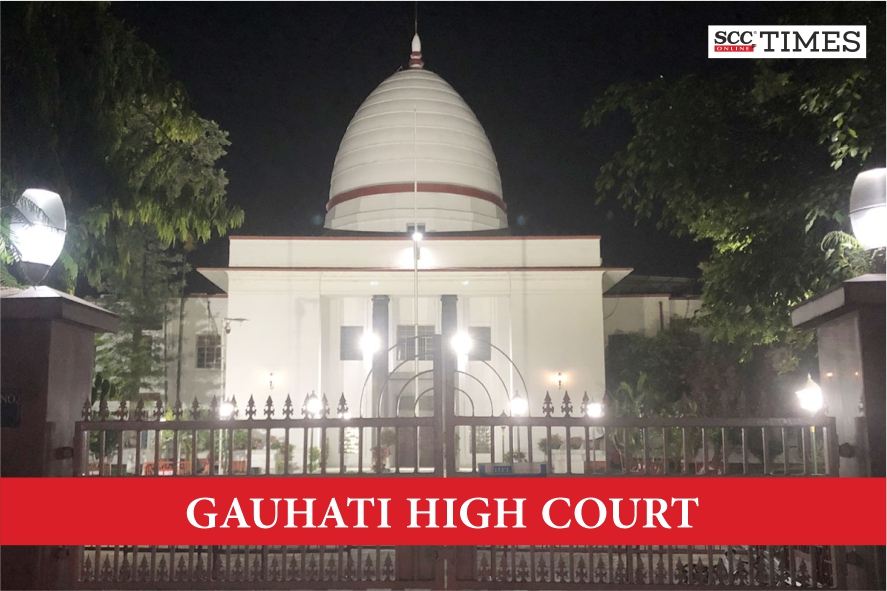Gauhati High Court: The present was an application under Section 11(6) of the Arbitration and Conciliation Act, 1996 (‘the 1996 Act’) for appointment of an Arbitrator in terms of the Arbitration Clause executed between the parties, and an Arbitral Tribunal made up of three Arbitrators were to be constituted. Michael Zothankhuma, J., held that arbitration could be invoked by a party, in spite of the availability of the alternative remedy provided under the provisions of the Real Estate (Regulation and Development) Act, 2016 (‘RERA Act’).
Background
Petitioners and respondents executed an agreement for sale of an apartment on 24-01-2017 and as per the terms and conditions of the said agreement, Respondent 1 was to deliver possession of the apartment on 20-12-2020. Thus, petitioners paid 95% of the total consideration amount of the apartment and the remaining 5% was to be paid at the time of handing over possession of the said apartment. However, as the apartment was not handed over to petitioners, they claimed interest as per the provisions of Section 18 of the RERA Act and Clause 11.3 of the Agreement.
Petitioners’ counsel submitted that adjudication of a dispute in terms of the Arbitral Clause between the parties was not barred by the existence of a concurrent remedy under the RERA Act. Whereas counsel for respondents submitted that under Section 35 of the RERA Act, the authority who could decide the dispute raised by petitioner, could call for information and conduct investigation which would not be possible in an arbitral proceeding. Further, under Chapter-VIII of the RERA Act, if any promoter did not comply with the orders, decisions, or directions issued by an authority, the authority could impose penalties which would not be possible in the case of an arbitral proceeding. Further, it was submitted that the award made by an Arbitral Tribunal could not be implemented or enforced as was possible to be done in terms of the RERA Act.
Analysis, Law, and Decision
The issue for consideration was “whether there was any bar to invoke the arbitration clause in the contract agreement, for claiming payment of interest, for not handing over possession of the apartment on time, in terms of Schedule III Part-III of the Agreement dated 24-01-2017, when a statutory remedy was available under the RERA Act?”.
The Court relied on Priyanka Taksh Sood v. Sunworld Residency Pvt. Ltd., 2022 SCC OnLine Del 4717 (‘Sunworld Residency Case’), wherein the Delhi High Court held that adjudication of a dispute in terms of an Arbitral Clause between the parties was not barred, because of the existence of a concurrent remedy under the RERA Act. The Court also relied on Bihar Home Developers and Builders v. Narendra Prasad Gupta, 2021 SCC OnLine Pat 1355 (‘Bihar Home Developers and Builders Case’), wherein upon analysis of Sections 88 and 89 of the RERA Act, it was held that the RERA Act was not inconsistent with the provisions of the 1996 Act.
The Court opined that in the present case, there was nothing to show that there was any inconsistency or repugnancy between the provisions of the RERA Act and arbitration as an alternative. Even otherwise, the parties had agreed to the arbitration clause provided in the contract agreement for settlement of their disputes including the issue raised by petitioners. The Court, on applying the fourfold test laid by the Supreme Court in Vidya Drolia v. Durga Trading Corpn., (2021) 2 SCC 1, for deciding as to whether the subject-matter of the present writ petition was arbitrable or not, opined that the four test did not bar the subject-matter in dispute in the present case from being arbitrable.
The Court relied on Sunworld Residency Case (supra) and Bihar Home Developers and Builders Case (supra) and held that arbitration could be invoked by a party, in spite of the availability of the alternative remedy provided under the provisions of the RERA Act. The Court relied on National Seeds Corpn. Ltd. v. M. Madhusudhan Reddy, (2012) 2 SCC 506, and Emaar MGF Land Ltd. v. Aftab Singh, (2019) 12 SCC 751, wherein the Supreme Court allowed the party to choose between the public or private fora.
The Court noted that in the present case, petitioners opted for arbitration, as per the arbitration clause, for settling the dispute between them and opined that the arbitration clause which had been agreed to by the parties for resolution of their disputes could be chosen by petitioners for deciding the present dispute, instead of taking recourse to the RERA Act.
The Court noted that counsel for petitioners submitted that due to the cost factor payable as Arbitrators fees, which might become burdensome if three Arbitrators were to be given payments, only one Arbitrator might be appointed to decide the dispute between the parties. The Court relied on Union of India v. Singh Builders Syndicate, (2009) 4 SCC 523 and opined that even though the arbitration clause provided for appointment of a Three Member Arbitral Tribunal and petitioner had appointed an Arbitrator from his side, still a single Arbitrator could be appointed by this Court, for settlement of the dispute between the parties, as respondents, had waived their right to appoint an Arbitrator.
The Court disposed of the petition and appointed Justice (Retired) H.N. Sarma as an Arbitrator and stated that any disclosures to be made in terms of Section 12(5) and Seventh Schedule of the 1996 Act, should be made known to the parties.
[Pallab Ghosh v. Simplex Infrastructures Ltd., 2024 SCC OnLine Gau 751, decided on 13-06-2024]
Advocates who appeared in this case:
For the Petitioners: Advocate S. Mitra
For the Respondents: Advocate R.J. Das







